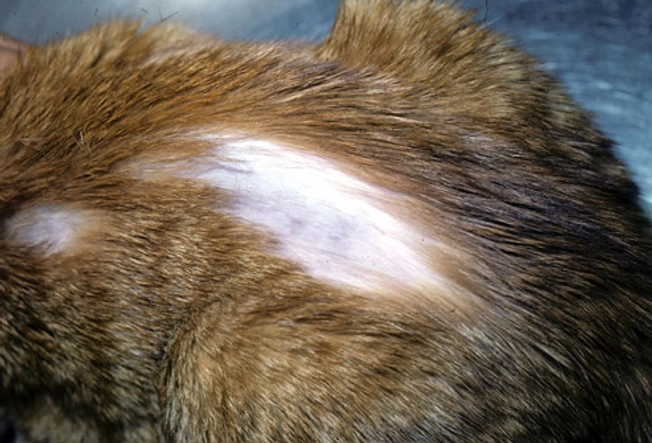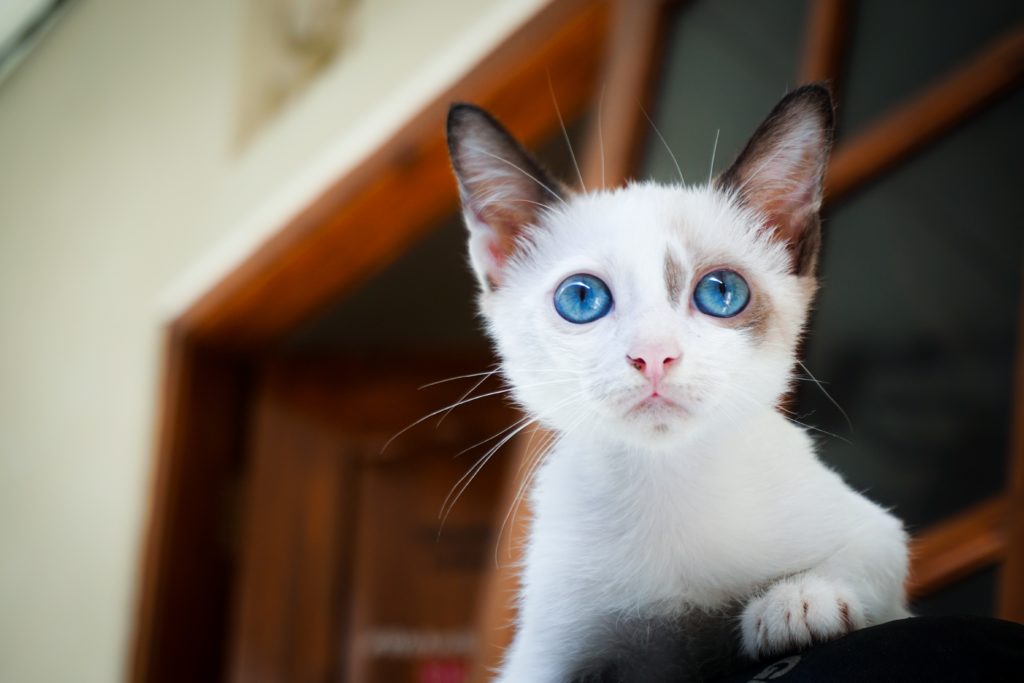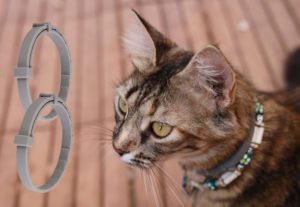If you have a kitten with sensitive skin, you know how challenging it can be to keep her comfortable and healthy. Sensitive skin can cause itching, irritation, redness, hair loss, scabs and even infections. It can also make grooming a stressful experience for both you and your kitten.
Fortunately, there are ways to groom your kitten with sensitive skin without causing her more discomfort or harm. In this guide, we will answer some common questions about grooming kittens with sensitive skin and share some tips and products that can make the process easier and more enjoyable.
What are some signs that a kitten has sensitive skin?

Sensitive skin can have different causes and symptoms depending on the individual kitten.
| Common signs that your kitten has sensitive skin |
|---|
| – Excessive licking, biting or scratching of certain areas of the body – Hair loss or thinning in patches or all over the body – Dry, flaky, scaly or oily skin – Redness, inflammation, bumps or sores on the skin – Bad odor or discharge from the skin or ears – Frequent ear infections or ear mites – Sneezing, coughing or wheezing – Watery eyes or runny nose |
If you notice any of these signs in your kitten, you should consult your veterinarian to rule out any underlying medical conditions that may be causing or contributing to her sensitive skin.
| Some of the possible causes of sensitive skin in kittens are: |
|---|
| – Allergies to food, environmental triggers, fleas or other parasites – Hormonal imbalances or genetic disorders – Nutritional deficiencies or poor diet – Stress, anxiety or boredom – Immune system problems or infections – Skin cancer or other tumors |
Your veterinarian can perform tests to diagnose the cause of your kitten’s sensitive skin and prescribe appropriate treatments.
How to groom a kitten with sensitive skin

Grooming is an essential part of caring for your kitten’s health and well-being. It helps to remove dirt, debris, dead hair and parasites from her coat and skin. It also stimulates blood circulation, distributes natural oils and prevents mats and tangles. Grooming also gives you a chance to bond with your kitten and check for any signs of problems.
However, grooming a kitten with sensitive skin can be tricky. You need to be gentle, careful and use the right tools and products to avoid irritating her skin further.
Some steps to follow when grooming your kitten with sensitive skin:
1. Choose a quiet and comfortable place to groom your kitten. Avoid loud noises, bright lights or distractions that may stress her out. You can also use treats, toys or praise to reward her for being calm and cooperative.
2. Brush your kitten gently with a soft-bristled brush or a grooming glove. Begin at the head and move towards the tail, brushing along the hair growth direction. This will gently remove any dirt, dander or loose hair from your kitten’s fur and minimize shedding. If you want to learn about different brushes for your cat’s coat, you can read our article Cat Grooming Essentials: Exploring Different Types of Brushes for Your Cat’s Coat.
3. Check your kitten’s ears for any signs of dirt, wax, infection or parasites. Use a damp cotton ball or a cat ear cleaner to gently wipe the inside of the ear flap. Do not insert anything into the ear canal as it may damage the eardrum or push debris further in.
4. Trim your kitten’s nails carefully with a cat nail clipper or a nail file. Hold her paw firmly but gently and expose one nail at a time. Cut only the tip of the nail and avoid cutting the quick (the pink part of the nail that contains blood vessels and nerves). If you accidentally cut the quick, apply some styptic powder or cornstarch to stop the bleeding.
5. Bathe your kitten only when necessary with a mild cat shampoo that is specially formulated for sensitive skin. Wet her coat thoroughly with lukewarm water and apply a small amount of shampoo. Massage it gently into her fur and skin and rinse well with clean water. Avoid getting shampoo in her eyes, ears, nose or mouth.
6. Dry your kitten gently with a soft towel or a hair dryer on low heat setting. Do not rub her fur too hard as it may cause friction or static electricity that can irritate her skin. Fluff her fur with your fingers or a comb to remove any tangles.
7. Reward your kitten with lots of praise, cuddles and treats for being a good sport.
How to test if a kitten is allergic to a grooming product
If you are not sure if your kitten is allergic to a grooming product, you can do a patch test before using it on her whole body. A patch test is a simple way to check for any adverse reactions to a product on a small area of the skin.
To do a patch test, follow these steps:
1. Choose a small and inconspicuous spot on your kitten’s body, such as the inside of her leg or behind her ear.
2. Apply a small amount of the product to the spot and wait for 24 hours.
3. Observe the spot for any signs of redness, swelling, itching, rash or irritation.
4. If you notice any of these signs, wash off the product immediately and do not use it on your kitten. Consult your veterinarian for advice on alternative products or treatments.
5. If you do not notice any signs of reaction, you can use the product safely on your kitten.
What are some grooming products that are safe for kittens with sensitive skin
When choosing grooming products for your kitten with sensitive skin, you need to look for products that are gentle, hypoallergenic, fragrance-free and natural. Avoid products that contain harsh chemicals, artificial colors, synthetic fragrances or alcohol that can dry out or irritate your kitten’s skin.
Some of the grooming products that are safe for kittens with sensitive skin are:
Frisco Hypoallergenic Grooming Wipes
These wipes are made with natural ingredients such as baking soda, coconut-derived cleanser and organic aloe vera juice that cleanse and soothe your kitten’s skin. They are also hypoallergenic and free of dyes, parabens and added fragrances.
Earthbath Oatmeal & Aloe Shampoo

This shampoo is made with oatmeal and organic aloe vera that moisturize and heal your kitten’s dry and itchy skin. It also contains almond and vanilla extracts that give your kitten a pleasant scent. It is soap-free and pH-balanced for your kitten’s skin.
Burt’s Bees Dander Reducing Spray

This spray is made with colloidal oat flour and aloe vera that condition and hydrate your kitten’s coat and skin. It also helps to reduce dander and flaking that can cause allergies. It is pH-balanced and free of sulfates, colorants and added fragrances.
Safari Soft Slicker Brush

This brush has fine and flexible pins that gently remove mats, tangles and loose hair from your kitten’s coat. It also has a comfortable grip handle and an angled head that make brushing easier. It is suitable for all coat types and lengths.
Pet Republique Cat Nail Clippers
These clippers have sharp and durable stainless steel blades that cut your kitten’s nails cleanly and quickly. They also have ergonomic handles and a safety guard that prevent over-cutting or injuring your kitten’s nails. They are easy to use and come with a lifetime warranty.

What are some natural ingredients that are safe for grooming kittens with sensitive skin
If you prefer to use natural ingredients for grooming your kitten with sensitive skin, you can find some of them in your kitchen or garden. Some of the natural ingredients that are safe for grooming kittens with sensitive skin are:
Coconut oil
Coconut oil is rich in fatty acids that nourish and moisturize your kitten’s skin and coat. It also has antibacterial, antifungal and anti-inflammatory properties that help to prevent infections and soothe irritation. You can apply a small amount of coconut oil to your kitten’s skin or add it to her food.
Oatmeal
Oatmeal is a soothing ingredient that can relieve itching, inflammation and dryness in your kitten’s skin. You can make an oatmeal bath by grinding some oatmeal into a fine powder and adding it to warm water. Soak your kitten in the oatmeal bath for 10 minutes and rinse well.
Aloe vera
Aloe vera is a healing plant that can hydrate, heal and protect your kitten’s skin from damage. You can use fresh aloe vera gel from the plant or buy an organic aloe vera gel from the store. Apply a thin layer of aloe vera gel to your kitten’s skin or add it to her shampoo.
Chamomile
Chamomile is a calming herb that can reduce stress, anxiety and inflammation in your kitten’s skin. You can make a chamomile tea by steeping some chamomile flowers in hot water and letting it cool down. Spray the chamomile tea on your kitten’s coat or add it to her bath water.
Apple cider vinegar
Apple cider vinegar is an acidic ingredient that can balance the pH level of your kitten’s skin and prevent bacterial growth. It can also help to remove dirt, grease and odors from your kitten’s coat. Dilute some apple cider vinegar with water and spray it on your kitten’s coat or add it to her rinse water.
What are some other factors to consider when choosing grooming products for kittens with sensitive skin
Besides the ingredients, there are some other factors that you should consider when choosing grooming products for your kitten with sensitive skin. Some of these factors are:
The age of your kitten
Kittens have more delicate and sensitive skin than adult cats, so they need products that are specially designed for their age group. Look for products that are labeled as kitten-friendly, gentle or mild.
The type and length of your kitten’s coat
Different coat types and lengths may require different grooming products and tools. For example, long-haired kittens may need more frequent brushing and detangling than short-haired kittens. Look for products and tools that are suitable for your kitten’s coat type and length.
The season and climate
The season and climate can affect your kitten’s skin condition and grooming needs. For example, in winter, your kitten may need more moisturizing products to prevent dryness and cracking. In summer, your kitten may need more cooling products to prevent overheating and sunburn. Look for products that are appropriate for the season and climate.
The frequency of grooming
The frequency of grooming can also affect your kitten’s skin health and comfort. For example, bathing your kitten too often can strip her natural oils and cause dryness and irritation. Brushing your kitten too rarely can cause mats and tangles that can pull on her skin and cause pain. Find a balance between grooming your kitten too much or too little.
What are some common grooming mistakes to avoid when dealing with kittens with sensitive skin
When grooming your kitten with sensitive skin, you need to be extra careful and avoid some common grooming mistakes that can worsen her condition or cause more problems. Some of these mistakes are:
Using human products on your kitten
Human products such as shampoo, soap, lotion or perfume are not suitable for your kitten’s skin. They may contain ingredients that are too harsh, toxic or allergenic for your kitten. Always use products that are specifically made for cats or kittens.
Using expired or contaminated products on your kitten
Expired or contaminated products such as shampoo, conditioner or wipes can harbor bacteria, fungi or parasites that can infect your kitten’s skin. They may also lose their effectiveness or cause adverse reactions. Always check the expiration date and the condition of the products before using them on your kitten.
Using the wrong water temperature or pressure on your kitten
Your kitten’s skin sensitivity and comfort can be affected by water temperature and pressure. Burns or chills on your kitten’s skin can be caused by water that is too hot or too cold. Irritation or ineffective cleaning on your kitten’s coat can be caused by water that is too strong or too weak. Always use lukewarm water and moderate pressure when bathing or rinsing your kitten.
Using the wrong drying method on your kitten
Drying method can also affect your kitten’s skin condition and comfort. Friction or dampness on her skin can be caused by drying your kitten too roughly or too slowly. Germs or hair follicle damage can be introduced by drying your kitten with a dirty or rough towel or a hot hair dryer. Always dry your kitten gently and quickly with a clean and soft towel or a low heat hair dryer.
How often should you groom a kitten with sensitive skin
The frequency of grooming your kitten with sensitive skin depends on several factors such as her coat type, length, condition, lifestyle and preference. There is no one-size-fits-all answer to this question, but here are some general guidelines to follow:
Brushing
You should brush your kitten at least once a week to remove loose hair, dirt and dander from her coat and prevent mats and tangles. If your kitten has long hair, you may need to brush her more often or use a comb or a detangler to prevent knots.
Bathing
You should bathe your kitten only when necessary, such as when she is very dirty, smelly or has something sticky or harmful on her fur. Bathing your kitten too often can dry out her skin and strip her natural oils. If you need to bathe your kitten more frequently due to medical reasons, consult your veterinarian for advice on how to protect her skin.
Ear cleaning
You should clean your kitten’s ears once a month or as needed to remove any dirt, wax, infection or parasites from her ear canal. If you notice any signs of ear problems such as redness, swelling, discharge, odor or scratching, consult your veterinarian for treatment.
Nail trimming
You should trim your kitten’s nails every two weeks or as needed to prevent them from growing too long, curling into her paw pads or scratching herself or others. If you are not comfortable trimming your kitten’s nails yourself, you can take her to a professional groomer or a veterinarian for assistance.
Are there any specific grooming techniques that are better for kittens with sensitive skin
When grooming your kitten with sensitive skin, you need to use some specific grooming techniques that are better for her skin condition and comfort. Some of these techniques are:
Start grooming your kitten when she is young and relaxed
The best time to start grooming your kitten is when she is young and relaxed. This way, you can get her used to the grooming process and make it a positive and enjoyable experience for her. You can also avoid any fear or resistance that may develop later on.
Use gentle strokes and pressure
When brushing, bathing or drying your kitten, use gentle strokes and pressure that follow the direction of her hair growth. Avoid pulling, tugging or rubbing her fur or skin too hard as it may cause pain or irritation. You can also use your fingers or a soft cloth to massage her skin and coat gently.
Avoid sensitive areas or lesions
When grooming your kitten, avoid sensitive areas or lesions on her skin such as the eyes, ears, nose, mouth, genitals or anus. These areas are more prone to infection or injury and may require special care or treatment. If you need to groom these areas, use a damp cotton ball or a soft cloth and be very gentle and careful.
Rinse thoroughly and pat dry
When bathing your kitten, rinse her thoroughly with clean water to remove any shampoo residue that may irritate her skin. Pat her dry with a soft towel and avoid rubbing or wringing her fur. You can also use a hair dryer on low heat setting to speed up the drying process and fluff up her fur.
Product Comparison: Best Grooming Tools for Kittens with Sensitive Skin
To help you choose the best grooming tools for your kitten with sensitive skin, we have compared some of the most popular and recommended products on the market based on their features, benefits, drawbacks and customer reviews. Here is a table that summarizes our comparison:
Frisco Hypoallergenic Grooming Wipes
Features:
- Natural ingredients such as baking soda, coconut-derived cleanser and organic aloe vera juice
- Hypoallergenic and free of dyes, parabens and added fragrances
- 100 wipes per pack
- 8 x 6 inches per wipe
Benefits:
- Cleanses and soothes your kitten’s skin
- Removes dirt, dander and odors from your kitten’s coat
- Gentle and safe for daily use
- Convenient and easy to use
Drawbacks:
- May not be effective for removing stubborn stains or sticky substances
- May not be suitable for kittens with severe allergies or skin conditions
- May dry out quickly if not stored properly
Customer Reviews:
- 4.7 out of 5 stars on Chewy.com
- Most customers love the wipes for their natural ingredients, gentle formula and pleasant scent
- Some customers complain that the wipes are too thin, small or dry
Earthbath Oatmeal & Aloe Shampoo
Features:
- Natural ingredients such as oatmeal, organic aloe vera, almond and vanilla extracts
- Soap-free and pH-balanced for your kitten’s skin
- 16 oz bottle
- Available in fragrance-free or vanilla & almond scent
Benefits:
- Moisturizes and heals your kitten’s dry and itchy skin
- Cleanses and deodorizes your kitten’s coat
- Leaves your kitten smelling fresh and sweet
- Safe for kittens over 6 weeks old
Drawbacks:
- May not lather well or rinse easily
- May not be suitable for kittens with severe allergies or skin conditions
- May cause eye irritation if not rinsed well
Customer Reviews:
- 4.7 out of 5 stars on Amazon
- Most customers love the shampoo for its natural ingredients, gentle formula and delicious scent
- Some customers complain that the shampoo is too watery, sticky or expensive
Burt’s Bees Dander Reducing Spray
Features:
- Natural ingredients such as colloidal oat flour and aloe vera
- pH-balanced and free of sulfates, colorants and added fragrances
- 10 oz bottle
- Spray nozzle for easy application
Benefits:
- Conditions and hydrates your kitten’s coat and skin
- Reduces dander and flaking that can cause allergies
- Safe for kittens over 8 weeks old
- No rinsing required
Drawbacks:
- May not be effective for removing mats or tangles
- May not be suitable for kittens with severe allergies or skin conditions
- May leave a residue or film on your kitten’s coat
Customer Reviews:
- 4.4 out of 5 stars on Amazon
- Most customers love the spray for its natural ingredients, gentle formula and no-rinse convenience
- Some customers complain that the spray is too oily, sticky or smelly
Safari Soft Slicker Brush
Features:
- Fine and flexible pins that gently remove mats, tangles and loose hair from your kitten’s coat
- Comfort grip handle and angled head that make brushing easier
- Suitable for all coat types and lengths
Benefits:
- Removes loose hair, dirt and dander from your kitten’s coat
- Prevents mats and tangles that can pull on her skin and cause pain
- Stimulates blood circulation and distributes natural oils
Drawbacks:
- May not be effective for removing stubborn mats or tangles
- May not be suitable for kittens with severe allergies or skin conditions
- May cause irritation or damage to your kitten’s skin if used too roughly or frequently
Customer Reviews:
- 4.5 out of 5 stars on Amazon
- Most customers love the brush for its soft pins, comfortable handle and easy-to-use design
Conclusion
Grooming your kitten with sensitive skin can be a challenge, but it doesn’t have to be a nightmare. With the right products, tools and techniques, you can keep your kitten’s skin and coat healthy, clean and comfortable. You can also prevent or treat any skin problems that may arise and make grooming a positive and enjoyable experience for both of you.
We hope this guide has given you some useful information and tips on how to groom your kitten with sensitive skin. Remember to always consult your veterinarian if you have any questions or concerns about your kitten’s skin condition or grooming needs.
With a passion for cats and years of experience in cat care and grooming, I have gained valuable insights and expertise that I want to share with other cat lovers. I believe that every cat deserves the best care possible, and through this platform, I aim to empower cat owners like you to provide the utmost love and care for your feline companions.



